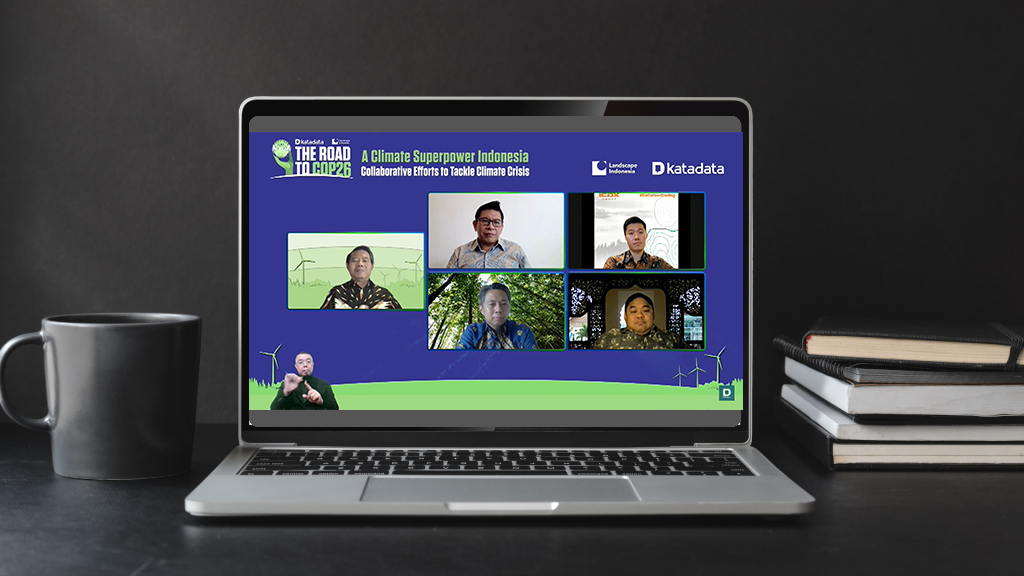Jakarta, 21 October 2021 – In the 26th Conference of Parties to be held in Glasgow on 31 October – 10 November 2021, the Government of Indonesia carries four main agendas, namely NDC Implementation, Fulfillment/Completion of the Paris Rule Book, Long Term Strategy 2050, and Net-Zero Emission goal.
On this occasion, Indonesia will highlight the reduced rate of deforestation in the last 5 years and efforts to restore peatlands. In addition, efforts to reduce emissions in the energy sector will also be discussed, such as providing a larger portion of renewable energy in the Electricity Supply Business Plan (RUPTL).
Hari Prabowo, Director of Development, Economy and Environment, Ministry of Foreign Affairs, in the webinar entitled “The Road to COP26 A Climate Superpower Indonesia; Collaborative Efforts to Tackle Climate Crisis” organized by Katadata and Landscape Indonesia, explained that Indonesia will bring a positive and openness to take part in efforts to control climate change.
“Basically, Indonesia is ready to be part of the solution and will be leading by example. We have good achievements in the forestry sector and continue to strive to reduce emissions in various fields,” he explained.
Hari Prabowo emphasized that in overcoming the climate crisis it is time for us to avoid naming and shaming, i.e feeling that our country is better at dealing with climate change than other countries.
“We must show the initiative to play a role in tackling climate change without blaming which party should be more responsible. This climate change requires the collaboration of all parties to ensure that our big goals are achieved,” he concluded.
On the other hand, on the same occasion, the Executive Director of the Institute for Essential Services Reform (IESR), Fabby Tumiwa stated that Indonesia should be more ambitious in setting targets for climate control and emission reduction.
“If we look at the latest NDC document that was submitted to the UNFCCC, Indonesia’s main target for the energy sector is still not ambitious. To suppress the increase in the earth’s temperature to only 1.5 degrees, in 2030 IESR calculates that 70% of the power generation mix must be from renewable energy, if we look at the NDC or other plans such as the RUPTL, it seems that this target has not been achieved, “said Fabby.
Fabby agreed that the forestry and land use change (AFOLU) sector as the largest emitter (60%) in Indonesia is a priority sector to reduce emissions. However, other sectors such as energy are predicted to produce greater emissions than the AFOLU after 2024-2025, and by 2030 will become the dominant emission source in Indonesia, thus it requires special attention and strategies for reducing emissions in the energy sector.
Fabby also mentioned that the financial need for climate management is huge. In the energy sector alone, it takes USD 30-40 billion per year until 2030. The next period, 2030-2050 investment needs will increase to USD 50-60 billion per year. Indonesia must pursue the commitment of developed countries to provide financial assistance for the climate crisis to developing countries.
Dharsono Hartono, President Director of Rimba Makmur Utama, added that Indonesia has a strategic role in climate crisis control diplomacy. According to him, as a country that has a large tropical rain forest and the largest peatland area, Indonesia’s responsibility in maintaining the increase in the earth’s temperature is very crucial.
“Without Indonesia contributing to global efforts to tackle climate change, the target of the Paris Agreement will not be achieved,” said Dharsono.

